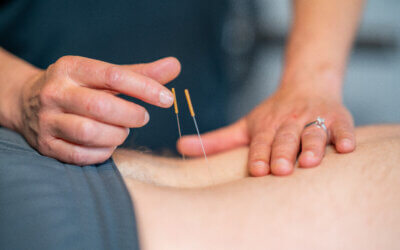Knee surgery has become much less invasive and much more popular in the past few years. In fact, the American Academy of Orthopaedic Surgeons (AAOS) reports that more than 600,000 total knee replacement surgeries are done every year. This organization also claims that 90% of patients who have a knee replacement feel less pain and move better afterward. However, deciding not to do physical therapy after knee surgery can make it harder to get these and other benefits of knee surgery. Here are two issues that this decision could cause:
- Difficulty developing a recovery plan
Physical therapists have experience working with surgeons and primary care doctors. They’re also trained to help people recover from surgeries. If you decide not to do physical therapy after knee surgery, it could make it much harder to build an effective recovery plan for you. You see, recovery from a total knee replacement is typically based on precise amounts of rest and movement.
Without the help of a physical therapist, you are likely to have difficulty judging how much rest and movement you need to recover as fast as possible. You also won’t have access to the therapist’s knowledge of beneficial therapy techniques. The lack of this information and support often leads people to not move their knee enough, and this can lead to a much slower recovery.
- Higher amount of pain during recovery
Not moving enough can not only slow your recovery, it can also make it more painful. This is especially likely if you choose not to do post-knee surgery physical therapy. Lack of movement can cause your knee joint to become stiff. In part, this stiffness is a result of the body not sending natural lubricating fluid to the joints, which typically happens during movement. The increased stiffness can make your knee more painful when you do try to move it.
Also, not moving enough during recovery can lead to weak knee muscles. This can cause the knee to become misaligned after surgery, and the incorrect joint position can cause you more pain. Weak knee muscles also provide less support to this joint. As a result, you could find it harder to walk without support, and you’re likely to need crutches or a walker for much longer after your surgery. Lack of movement can even cause the body to produce less endorphins. Since these chemicals are the body’s natural pain relievers, less endorphins tends to mean more pain.
Find help with post-knee surgery physical therapy at Continuum Wellness
Have you recently had a knee surgery? Continuum Wellness can help you find the post-knee surgery physical therapy you need. Our team offers free screenings, and this can help us find out what issues you need help with after your surgery. With a clearer understanding of your needs, we can build you an individualized therapy plan that’s designed to meet them. Your plan will be designed to include multiple beneficial therapy techniques, and some of these techniques might include:
- Joint mobilization
- Therapeutic exercises
- Total motion release
- Instrument assisted soft tissue mobilization (IASTM)
Don’t wait to start getting our help after your knee surgery. Contact our team today for more information or to schedule an initial appointment.



